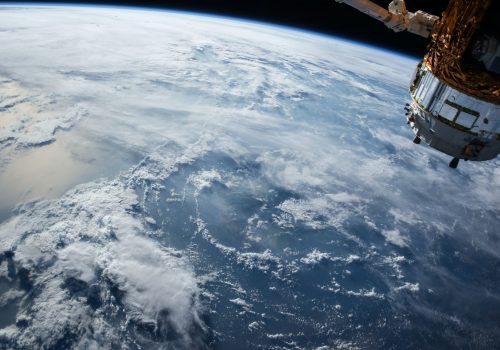About the GeoTech Center Space Program
The satellite technology industry is rapidly evolving, and, with it, the necessity for new global space governance strategies and standards that encourage humanitarian-focused satellite programs and aim to preserve orbital civility.
The rapid, ongoing evolution of space technology is expanding the capabilities of industrialized nations to contribute to international development efforts. Satellite imagery and data have a diverse set of applications in disaster mitigation, agriculture optimization, clean energy implementation, and broadband accessibility – the full potential, of which, remains largely untapped. Among other barriers, the regions that stand to benefit the most from access to satellite data also tend to lack the capacity and infrastructure to analyze and apply it; equitable outer space is still a work in progress.
Fully leveraging space’s developmental potential will first and foremost require responsible stewardship of Earth’s orbits. Space debris or artificial material orbiting the Earth, poses a severe threat to in-orbit satellites—and is largely avoidable. Whether debris comes from old, decomposing space vehicles or from tactical antisatellite tests, like those recently conducted by Russia and China, any contact with a space vehicle may jeopardize functionality and, therefore, mission objectives. Acknowledging these risks and taking active steps to mitigate production of space debris will promote longevity of in-orbit vehicles and establish an accountability-centered and collaborative international atmosphere for data sharing.





